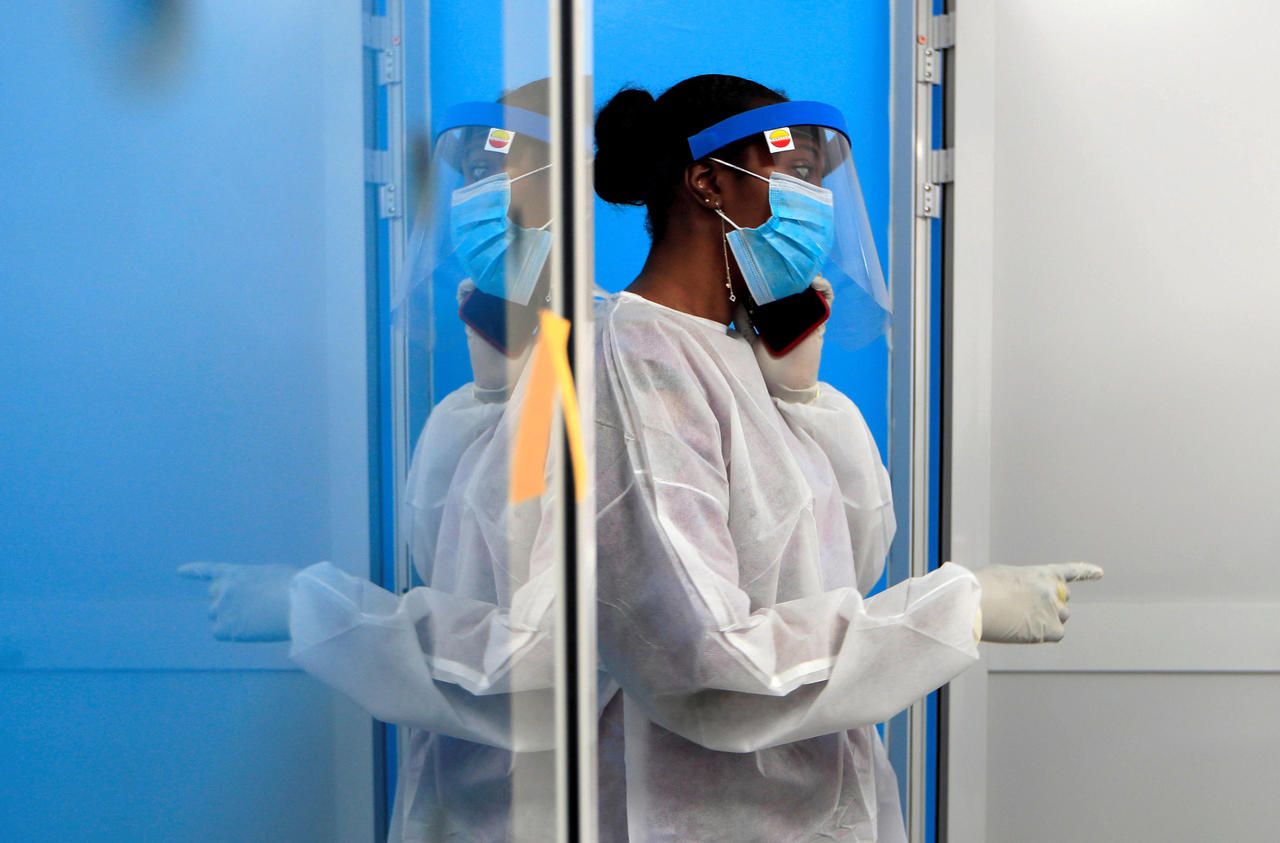For the third week in a row, the number of new confirmed cases of Covid-19 in France is on the rise. This increase “is intensifying”, even warned Public Health France (SPF) on Thursday in its weekly update on the epidemic. Since the beginning of July, worrying signals have been accumulating, showing that the country is now facing an epidemic recovery, admittedly slow but very real.
An increase in cases greater than that in the number of screenings
3,589 new cases were detected last week in metropolitan France, an increase of 27% compared to the previous week, after weekly increases of 21% and 13%, according to the count from Public Health France. Until then, the increase in the number of cases of Sars-Cov-2 infection was part of a context of an increase in the number of screening tests: the more we detected, the more cases we found.
However, for the past two weeks, the number of cases detected has increased more rapidly as a percentage than the number of tests carried out. “This reflects a real increase in the number of cases. It is a warning signal: the spread of the virus is intensifying, ”worries the Parisian Sibylle Bernard-Stoecklin, epidemiologist at the infectious diseases department of SPF.
All age groups now affected, and in particular 75 and over
Another worrying signal: the incidence of cases is now increasing for all age groups. Until now, transmission of the virus has been mostly active among young people, those who are less at risk. "We are now observing, for the first time since the epidemic peak was crossed, an increase in the number of cases in people aged 75 and over," warns Sibylle Bernard-Stoecklin.
"This signal is all the more worrying as it is confirmed by the increase in reports in social and medico-social establishments, in particular in nursing homes", insists the epidemiologist. Thus, the number of confirmed reports in these establishments is currently returning to the level observed at the end of May.
Hospitalizations are no longer decreasing
If they remain at low levels, the numbers of new conventional and intensive care hospitalizations have stopped decreasing, for the second consecutive week. “Now these numbers are stabilizing. It is also a signal that alerts us, ”emphasizes Sibylle Bernard-Stoecklin. This indicator is indeed "very reliable, independent of fluctuations linked to the screening effort", confirms Mircea T. Sofonea, lecturer in epidemiology of infectious diseases at the University of Montpellier. "It shows that the virus is circulating more."
The number of new intensive care admissions (83 new patients last week, against 78 the previous week) reached levels now close to those observed at the beginning of June. "But for now, the situation remains absorbable by the hospital system", tempers Pascal Crépey, professor and researcher in epidemiology at the School of Advanced Studies in Public Health (EHESP).
Increase in detections of extended family clusters
Another phenomenon that worries the health authorities: with the summer, family reunifications multiply. "We are observing an increase in detections of extended family clusters [which concern several family homes, Editor's note]", points out Sibylle Bernard-Stoecklin. "However, these gatherings increase the risk for the most vulnerable people of being exposed to the virus", underlines the epidemiologist.
Many affected regions
Among the departments most affected, in metropolitan France, we find Mayenne, classified in high vulnerability level. It is followed by the Gironde, Finistère and the Vosges, in moderate vulnerability. But more and more regions are now affected.
The two estimates of effective reproduction numbers (effective R) are now significantly greater than 1 in five regions of metropolitan France: Auvergne-Rhône-Alpes, Ile-de-France, New Aquitaine, Occitanie and Pays de la Loire. “It's a little more worrying since it now affects regions that had not, until then, been affected. This shows a much more homogeneous circulation of the virus in space than before, ”points out Mircea T. Sofonea.
A situation that favors the risk of a superpropagating event (that is to say a sudden phenomenon of massive contamination). "This type of event would result in a rapid restart and very difficult to control the epidemic", warns Pascal Crépey.
A reversible situation
"With an effective R overall of less than 1.5, the situation remains fairly easy to contain," insists Mircea T. Sofonea. "But as much the situation is not worrying for the summer, it must be brought under control for the fall, because the aggravating factors of transmission risks will accumulate", he warns.
Newsletter - Most of the news
Every morning, the news seen by Le ParisienI'm registering
Your email address is collected by Le Parisien to enable you to receive our news and commercial offers. Learn more
To contain the recovery, the French must therefore put an end to the collective relaxation of barrier gestures, in family, at work, or on leave, hammer the specialists: keep the distance of at least one meter, do not greet each other by shaking hands , stop hugging, wear a mask and limit contact with the most vulnerable. "The first two months of deconfinement showed that we were able to control this epidemic without containment," insists Pascal Crépey. “We can ourselves, through our behavior, adjust the epidemic thermostat. If we recover, the epidemic can come back under control ”.
At the slightest symptom, "it is more than ever necessary to be screened by virological test, isolating yourself even before having an appointment and then waiting for the result", underlined the General Directorate of Health ( DGS) Thursday. But we must "improve the responsiveness of the screening system", especially in Ile-de-France and in some very tourist areas, warns Pascal Crépey. “It's not possible to wait more than 24 hours to get tested. The system must absolutely be more responsive, ”recalls the researcher.

